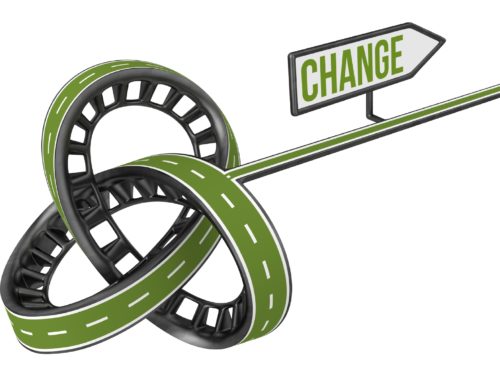“You shall know the truth, and the truth shall make you free.”
It pains my Southern Bible Belt upbringing to say this. Taken in isolation, there is a great deal of evidence that this well-known New Testament scripture is wrong.
Before you tune me out or plan an intervention, please understand the importance of the words, “taken in isolation.” The verse that directly precedes this well-known scripture adds context that validates this assertion. Unfortunately, most people leave that out when using this as a quote.
There are also a number of people who have said a variation on this message: “The truth shall set you free, but first it will tick you off.”
There is equal evidence that this isn’t true either.
If knowing the truth was all it took to change behavior, most of us would eat healthier, exercise more, pay more attention to our finances, or stop that bad habit that is ruining our lives and relationships. Those running for elected office wouldn’t say that everyone supporting their opponent was deplorable, or that 75 percent of the media are liars. We would be able to separate fact from fiction about climate change, immigration, or most every other politically divisive issue.
It knowing the truth actually set people free; there would be no significant resistance to change at work. Companies would solve the problems that cause poor customer service or product quality with the first complaint rather than make the same mistake over and over again. Unsubstantiated marketing claims would be made right with improved performance or replaced with the more truthful message that the company is mediocre at best.
The Leadership Lesson
In 2006, I wrote that nothing ever really changes until you tell yourself the truth. While technically correct, my statement was inadequate. Leaders must tell themselves and others the truth, but the real work of creating sustainable change comes after that.
A better message would have been that nothing ever changes until everyone acknowledges the truth, is emotionally ready to act, and then implements an agreed upon set of actions that move you toward your desired outcome.
Emotional readiness usually happens when crisis pushes us to change. Individuals decide to adopt healthier habits when faced with an illness. Political candidates stop playing fast and loose with facts when their supporters demand it. Companies take steps to reinvent themselves when they are no longer seeing the results they want.
Waiting for crisis can be dangerous. You never know when one is so serious that you can never recover. The better—and more difficult—approach is to create a compelling opportunity that pulls you toward the desired change.
Focusing on opportunity is easier for individuals. You can set an inspiring new direction and move toward it.
As organizations grow larger, it becomes a more complicated strategy to pull off especially if you are doing well. But, it can be done if you make a compelling case and invest the energy to show people how the change helps them. Reed Hastings, for instance, was able to move away from shipping DVDs and into streaming video.
At the societal level, it is exceptionally rare. The best you can hope for is a sustainable majority to keep elected leaders in power long enough for the change to become part of society’s fabric. One of my municipal government clients has maintained virtually the same elected leaders for over 12 years. That consistency of focus has allowed them to capture opportunities that their neighbors have missed.
At the national level in the U.S., President Kennedy was able to galvanize public support for a trip to the Moon. President Obama and the Democrats were able to push through the Affordable Care Act, but it has largely been dismantled. Other than that, every major change has taken place within the context of a crisis.
The biggest challenge leaders face today is bringing people with them on a transformation journey and then engaging them to act with a sense of urgency. Logic says that it should be as simple as sharing the factual truth. Knowing the truth, however, isn’t enough to free you to act.
Randy Pennington is an award-winning author, speaker, and leading authority on helping organizations achieve positive results in a world of accelerating change. To bring Randy to your organization or event, visit www.penningtongroup.com , email info@penningtongroup.com, or call 972.980.9857.
This article first appeared in Medium – Aggressive Transformation.





